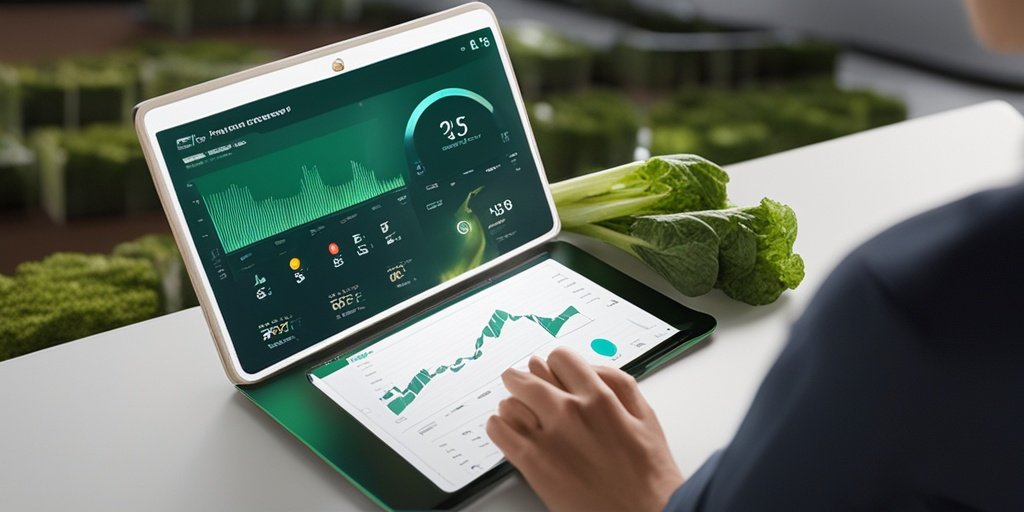⚡ Quick Summary
This study explores the role of AI and digital platforms in enhancing nutritional knowledge for athletes, particularly in the realm of ultra-endurance sports. The findings reveal that ChatGPT-4 outperformed both experienced athletes and registered dietitians in nutrition knowledge assessments, achieving an impressive 93% accuracy.
🔍 Key Details
- 📊 Participants: ChatGPT-3.5, ChatGPT-4, Google Bard, Microsoft Copilot, experienced ultra-endurance athletes, registered sports nutritionists, and the general population.
- 🧩 Assessment Tool: ULTRA-Q sports nutrition questionnaire.
- ⚙️ Technology: AI models including ChatGPT-3.5, ChatGPT-4, Google Bard, and Microsoft Copilot.
- 🏆 Performance: ChatGPT-4: 93%, Microsoft Copilot: 92%, Bard: 84%, ChatGPT-3.5: 83%.
🔑 Key Takeaways
- 📊 AI models demonstrated high proficiency in sports nutrition knowledge.
- 💡 ChatGPT-4 achieved the highest accuracy in nutritional assessments.
- 👩🔬 The averaged AI model outperformed the general population by 31% points and ultra-endurance athletes by 20% points.
- 🏆 In Fluids knowledge, the AI model surpassed registered dietitians by 49% points.
- 🌍 The study highlights the potential of AI in bridging nutritional knowledge gaps among athletes.
- 🧠 Integration of AI insights with expert human judgment could optimize athlete performance.
- 📈 Body Composition knowledge was a strong suit for the AI, outperforming the general population by 31% points.
- 🔍 Nutritional education could be significantly enhanced through AI-generated insights.

📚 Background
Nutrition plays a crucial role in athletic performance, especially in ultra-endurance sports, which present unique challenges. Despite its importance, many athletes lack adequate nutritional knowledge. This gap can hinder performance and recovery, making it essential to explore innovative solutions, such as AI and digital platforms, to enhance nutritional education.
🗒️ Study
The study utilized the ULTRA-Q, a specialized sports nutrition questionnaire, to evaluate the nutritional knowledge of various AI models compared to experienced ultra-endurance athletes and registered dietitians. Conducted by a team of researchers, the study aimed to assess whether AI could effectively bridge the knowledge gap in sports nutrition.
📈 Results
The results indicated that ChatGPT-4 achieved the highest accuracy at 93%, followed closely by Microsoft Copilot at 92%. The averaged AI model scored 88% overall, with notable strengths in Body Composition and Fluids knowledge. The AI models significantly outperformed both the general population and ultra-endurance athletes in various nutritional categories.
🌍 Impact and Implications
The findings of this study suggest that AI models can serve as valuable tools for enhancing nutritional education among athletes. By integrating AI-generated insights with expert human judgment, we can potentially optimize athletic performance and improve recovery strategies. This could lead to a new era in sports nutrition, where technology plays a pivotal role in athlete training and performance.
🔮 Conclusion
This study highlights the remarkable potential of AI in the field of sports nutrition. With AI models demonstrating high proficiency in nutritional knowledge, there is a promising opportunity to leverage these technologies for better athlete education and performance optimization. Continued research in this area could pave the way for innovative approaches to nutrition in sports.
💬 Your comments
What are your thoughts on the integration of AI in sports nutrition? Do you believe it can truly enhance athletic performance? 💬 Share your insights in the comments below or connect with us on social media:
Optimizing athletic performance through advanced nutrition strategies: can AI and digital platforms have a role in ultraendurance sports?
Abstract
Nutrition is vital for athletic performance, especially in ultra-endurance sports, which pose unique nutritional challenges. Despite its importance, there exist gaps in the nutrition knowledge among athletes, and emerging digital tools could potentially bridge this gap. The ULTRA-Q, a sports nutrition questionnaire adapted for ultra-endurance athletes, was used to assess the nutritional knowledge of ChatGPT-3.5, ChatGPT-4, Google Bard, and Microsoft Copilot. Their performance was compared with experienced ultra-endurance athletes, registered sports nutritionists and dietitians, and the general population. ChatGPT-4 demonstrated the highest accuracy (93%), followed by Microsoft Copilot (92%), Bard (84%), and ChatGPT-3.5 (83%). The averaged AI model achieved an overall score of 88%, with the highest score in Body Composition (94%) and the lowest in Nutrients (84%). The averaged AI model outperformed the general population by 31% points and ultra-endurance athletes by 20% points in overall knowledge. The AI model exhibited superior knowledge in Fluids, outperforming registered dietitians by 49% points, the general population by 42% points, and ultra-endurance athletes by 32% points. In Body Composition, the AI model surpassed the general population by 31% points and ultraendurance athletes by 24% points. In Supplements, it outperformed registered dietitians by 58% points and the general population by 55% points. Finally, in Nutrients and in Recovery, it outperformed the general population only, by 24% and 29% points, respectively. AI models show high proficiency in sports nutrition knowledge, potentially serving as valuable tools for nutritional education and advice. AI-generated insights could be integrated with expert human judgment for effective athlete performance optimization.
Author: [‘Puce L’, ‘Ceylan Hİ’, ‘Trompetto C’, ‘Cotellessa F’, ‘Schenone C’, ‘Marinelli L’, ‘Zmijewski P’, ‘Bragazzi NL’, ‘Mori L’]
Journal: Biol Sport
Citation: Puce L, et al. Optimizing athletic performance through advanced nutrition strategies: can AI and digital platforms have a role in ultraendurance sports?. Optimizing athletic performance through advanced nutrition strategies: can AI and digital platforms have a role in ultraendurance sports?. 2024; 41:305-313. doi: 10.5114/biolsport.2024.141063